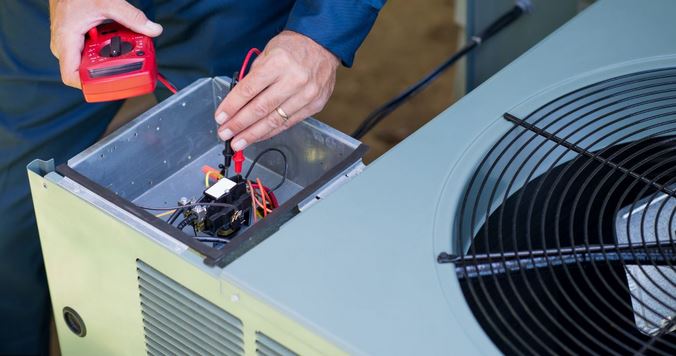
A house comes with a slew of unexpected and planned maintenance requirements, which add to the cost of ownership.
Houses equipped with a central cooling system or heating system should have routine maintenance performed to ensure that the unit is operating efficiently and to reduce the likelihood of an unexpected problem occurring later. In this case, the assistance of a qualified and experienced HVAC professional is required. In the field of “heating, ventilation, and air-conditioning,” the term “HVAC” refers to the abbreviation for “heating, ventilating, and air-conditioning.” In essence, an HVAC-trained professional regulates the temperature of a home, improves the indoor air quality, and regulates the flow of air throughout the house.
It is necessary to control air flow in order to maintain a comfortable indoor temperature while also ensuring a continuous supply of fresh air. This is accomplished through the use of an extensive network of air ducts that run throughout the residence. For as long as the HVAC system is turned on, this should be the expected outcome. When it comes to heating and cooling the air, you are covered, whether you’re using an outdoor cooling unit or an interior furnace. An additional benefit of having a good HVAC system in place is that it will filter the air in the house, eliminating any allergies or dander that may be in the air.
The general public is aware of the significance of having a properly functioning HVAC system. Because the majority of people have a fundamental desire to be cool in the summer and warm in the winter, they understand the concept in the most basic terms, which is understandable. Modern HVAC systems, on the other hand, should provide sufficient ventilation to ensure that specific air pollutants such as smoke, dust, airborne bacteria, foul odors, and dampness are filtered out. Some microbes are capable of causing illness and even disease if they are not properly filtered.
HVAC professionals will be able to explain the significance of such a system in great detail, as well as discuss which system would be the most appropriate for your needs.
An HVAC specialist will be able to assist you regardless of whether your home does not have an HVAC system or whether your current system needs to be upgraded or repaired. Before recommending a system, the expert will need to evaluate your home to determine which system would be the most effective. There are numerous variables to consider during this evaluation. In addition to the size and design of your home, the location of your windows, the walls in which they are located, as well as whether or not you have a basement or attic, and the condition in which those rooms are in are all factors that influence your heating and cooling costs. Following that, the technician will enter all of the information he has gathered into a computerized system, which will then provide him with a list of recommendations.
Once the data has been collected, the system will generate a list of suggestions, which the HVAC technician will be able to narrow down based on his own assessment as well as your requirements. There are no financial incentives in place for the technician to recommend the most expensive device in this situation. His number one priority is to make certain that you have a system that is specifically designed for your home. Having a unit that is significantly larger than your home will, for example, fail to remove moisture from the air, allowing dangerous germs and mold to grow in your home, putting you at risk of contracting illness.
It will also begin to switch itself on and off more frequently if the system is too large to handle it. This is referred to as short-cycling, and it has the potential to cause significant damage to the device. As a result, it will wear out more quickly, resulting in an increase in your energy costs. When compared to a properly sized system, a system that is too small will wear out much more quickly because it will have to work much harder to cool and heat your home. Having a qualified HVAC professional evaluate your home is essential because he can physically inspect it and determine what repairs or upgrades are necessary.
As an alternative to replacing your existing system, an HVAC specialist can assist you with routine maintenance of your existing system, allowing you to extend the life of your system. It is recommended by many specialists that units be inspected every two to four years. This is especially true during the autumn and spring months, as preparation for the winter and summer months, when the unit is required to expend the greatest amount of effort. If your system is functioning properly, you will notice a significant reduction in your heating and cooling costs.
